How to Do When Visiting Japan with Tattoos?
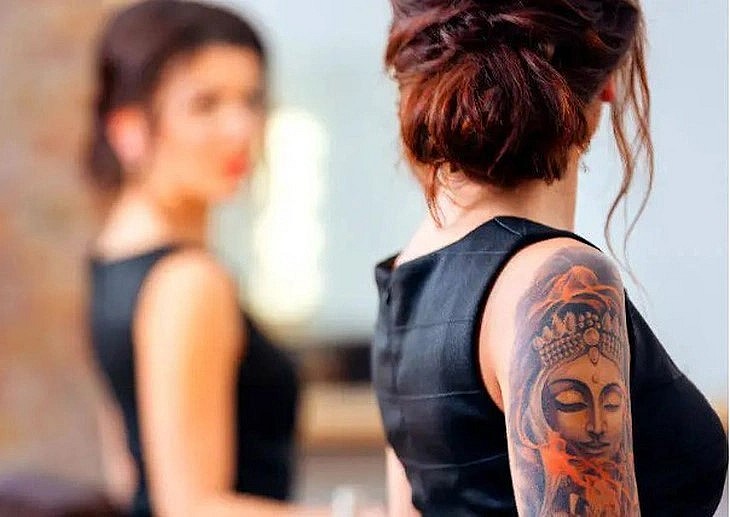 |
| Illustration photo: Live Japan |
Prejudice toward tattoos
The Japanese people's aversion to tattoos stems from the punishment of tattooing criminals dating back to the Edo period. Tattoos were forbidden in this country in 1872, but were later reinstated in 1948.
Japanese people still have prejudices toward tattoos nowadays. They believe that this form of art is related with the Yakuza, a Japanese gang that specialized in tattooing its members' entire bodies.
Tattooed people are frequently denied entrance to public places such as saunas, beaches, gyms, hot springs, and swimming pools...
What should you do if you have a tattoo?
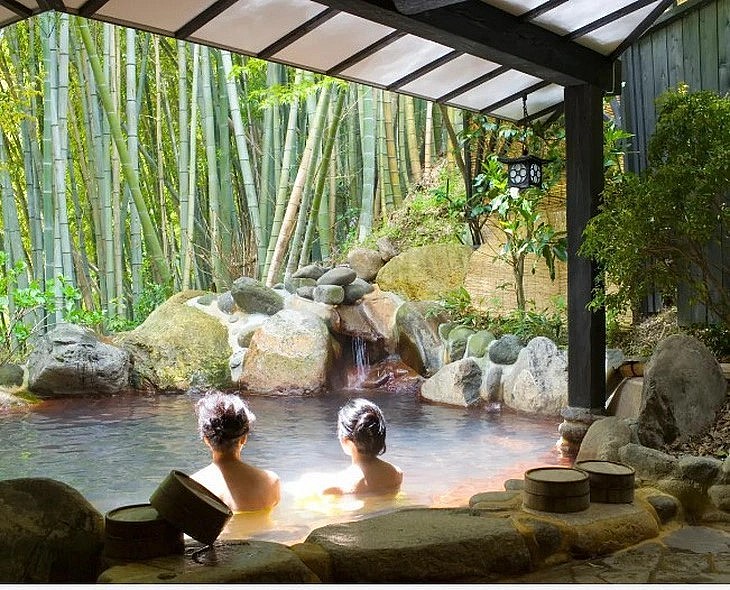 |
| Results of a survey show that more than 50% of onsen facilities in Japan refuse to accept customers with tattoos - Illustration: The Points Guy |
Tattoos are not forbidden, but they can inhibit visitors from fully experiencing Japan.
Tourists can conceal tattoos by wearing long-sleeved shirts, long pants, or accessories (bracelets, scarves,...). Furthermore, if the tattoo is minor, they can conceal it with a bandage or by using thick makeup.
Some places have signs preventing people from having tattoos, therefore visitors must plan ahead of time or use language translation tools to avoid making mistakes.
Guests who choose Airbnb housing (sharing accommodation or renting a property from locals) must openly discuss having a tattoo with the homeowner before visiting. This allows tourists to avoid making others uncomfortable while simultaneously expressing respect for the host country's culture.
Don't the Japanese have tattoos?
Unlike in many other countries nowadays, visible tattoos are rare in Japan. For social and occupational reasons, many Japanese people who like tattoos cover them completely. Even Yakuza members have traditionally restricted their tattooing to locations beneath their clothing.
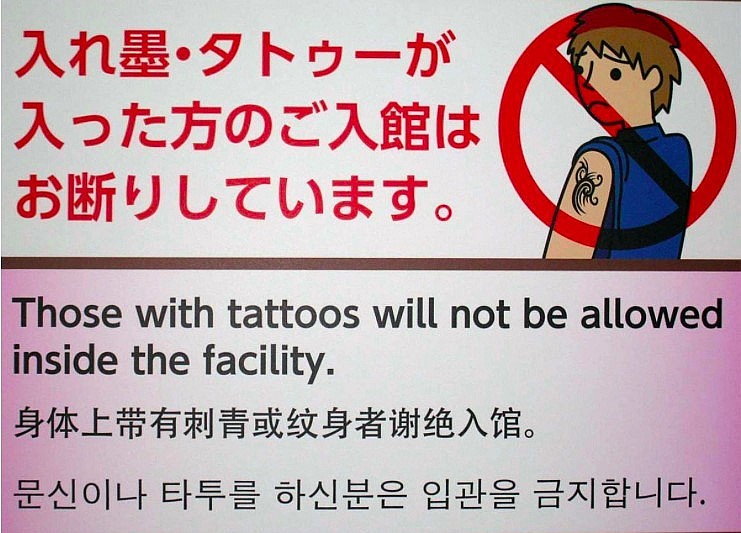 |
| Many ryokans (Japanese inns) will not accept tattooed guests. |
That is not to imply that tattoos are unpopular in Japan. I had multiple congratulations when my tattoos were visible, and one of my favorite moments on our most recent trip was when I was wearing a summer dress in the subway and my forearm tattoos were visible. One calm young man appeared intrigued and covertly pushed up his shirt sleeves to reveal the very lower limits of his arm tattoos. We were both part of a "tribe." There were no words spoken, only a hint that my husband may shoot him as he posed casually against the train door.
Suggestions for Tattooed Visitors
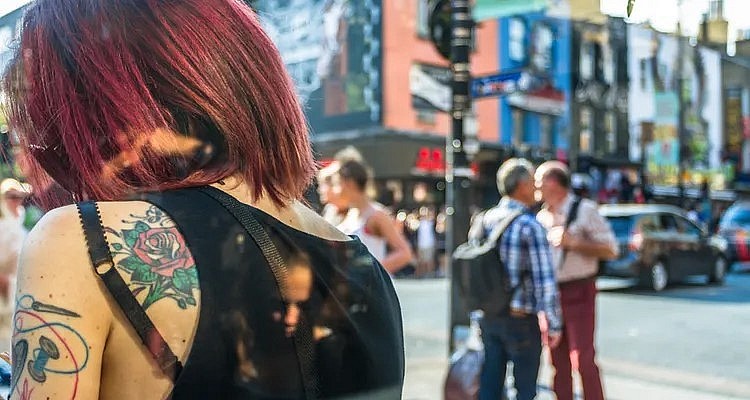 |
| For the tattooed traveller, there are few simple solutions |
While tattoos are not prohibited, they can inhibit someone from fully immersing themselves in Japanese society. Tourists with visible tattoos should be warned that their artwork may upset some residents when using public transportation in Japan, such as trains. Keeping this in mind, visitors to Japan may want to prepare for their stay by:
Being Prepared: Traveling to another country with a language barrier might be challenging. Having unlimited Wi-Fi can help travelers translate any deceptive or unclear signs indicating whether or not persons with tattoos are permitted.
Before Your Stay, Discuss Your Tattoos: If you intend to stay with a host family or an AirBnB in Japan, you should discuss your tattoos with them before arriving. This will ensure that you do not break any etiquette rules when visiting a Japanese home.
For the tattooed traveller, there are few simple solutions:
You won't always need to cover up, but if you do, there are some easy solutions.
1) Wear a rashie to the pool.
Wearing rashies to the pool is an easy way to cover up if your tattoos are on your upper body. They're commonly accessible online and in select places, and they're also UV-protective.
2) Instead of going to a public onsen, book a private one.
If no one sees your tattoos, they are irrelevant. If you reserve a private onsen instead of going to a public bathhouse, no one will see you naked and you will still be able to enjoy a Japanese onsen. On our most recent vacation, we tried this out, and I highly suggest it. I recommend reading this blog about visiting onsens with tattoos for further information and tips.
3) Wear clothing or scarves.
Although it may seem evident, most tattoos can be concealed by wearing lightweight, long-sleeved clothing or slacks. This was a challenge because my most recent trip to Japan was in August, their hottest month, but I carried long-sleeved clothing and arm covers on hand for when they were needed. Long sleeved shirts cover many people's tattoos, and the added plus is that they may be pulled down when needed - like as when entering ryokans, traditional eateries, temples, or shrines - and rolled up again when you're feeling hot or want to show off your ink.
Similarly, neck tattoos can be concealed with lightweight scarves stored in bags for such situations.
4) Experiment with arm wraps.
Arm coverings are extremely popular in Japan, especially among women during the summer. They are UV-protective and commonly accessible at department stores. Before I traveled, I purchased some adorable lace arm wraps from Etsy (seen above at the Sanjsangen-d Buddhist temple in Kyoto's Higashiyama District) and they worked perfectly. I could keep them in my luggage and put them on whenever I thought I'd be entering a more traditional setting where my forearm tattoos might not be tolerated. Lace was not as useful for my spouse, however athletic style arm wraps might be substituted if lace is not desired.
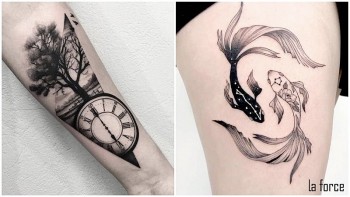 Top 10+ Unique Bicep Tattoos Exclusively For Men Top 10+ Unique Bicep Tattoos Exclusively For Men |
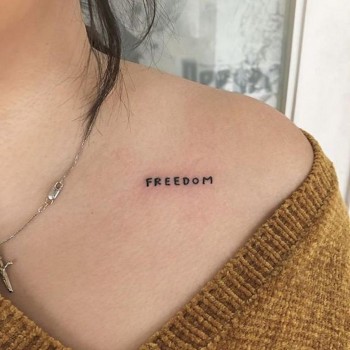 Best Minimal Style Tattoos For Simple People Best Minimal Style Tattoos For Simple People |
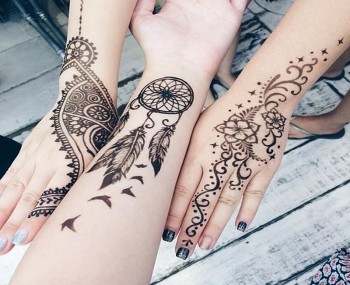 Why are Tattoos Frowned upon in Japan? Why are Tattoos Frowned upon in Japan? |























